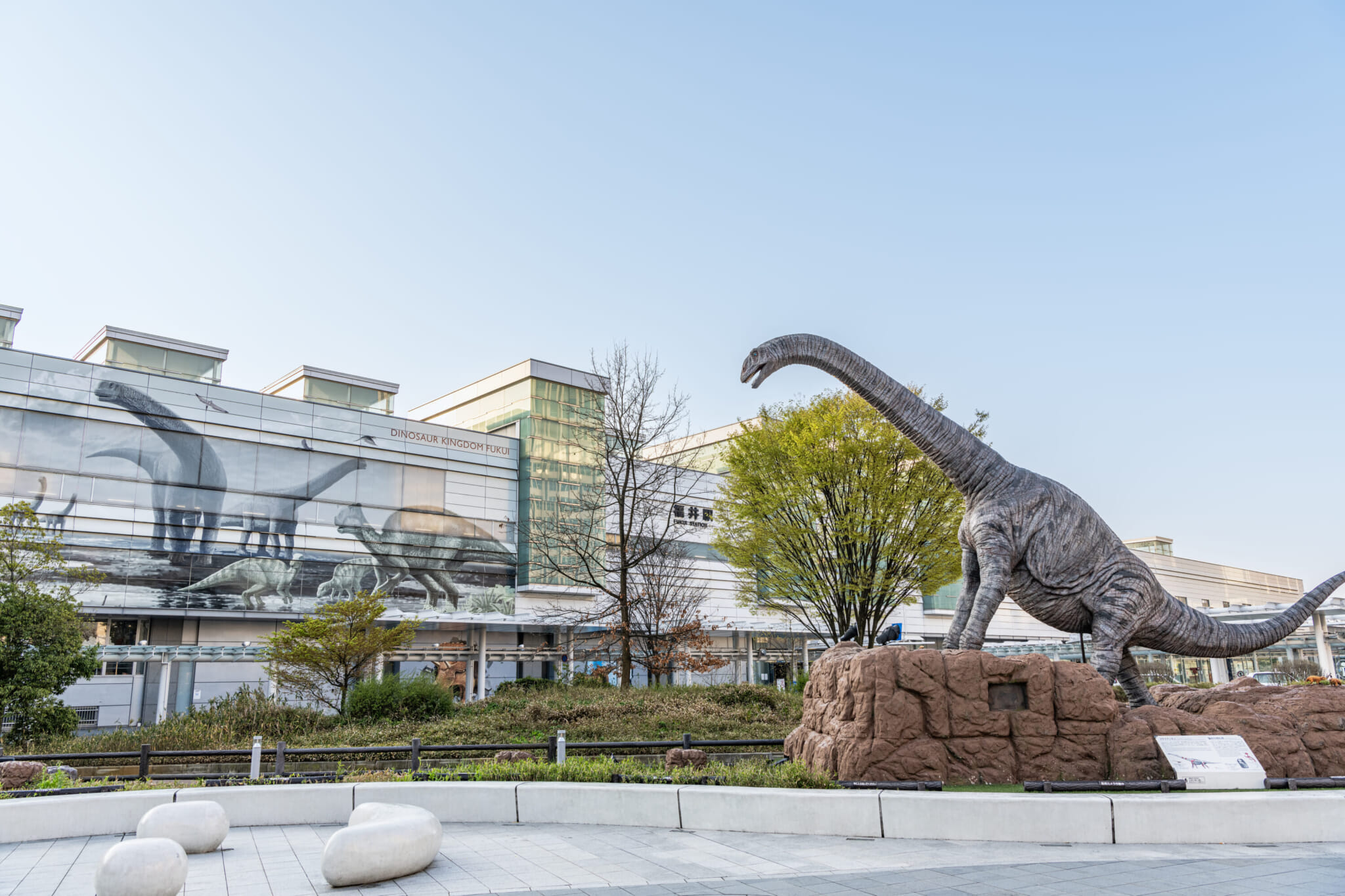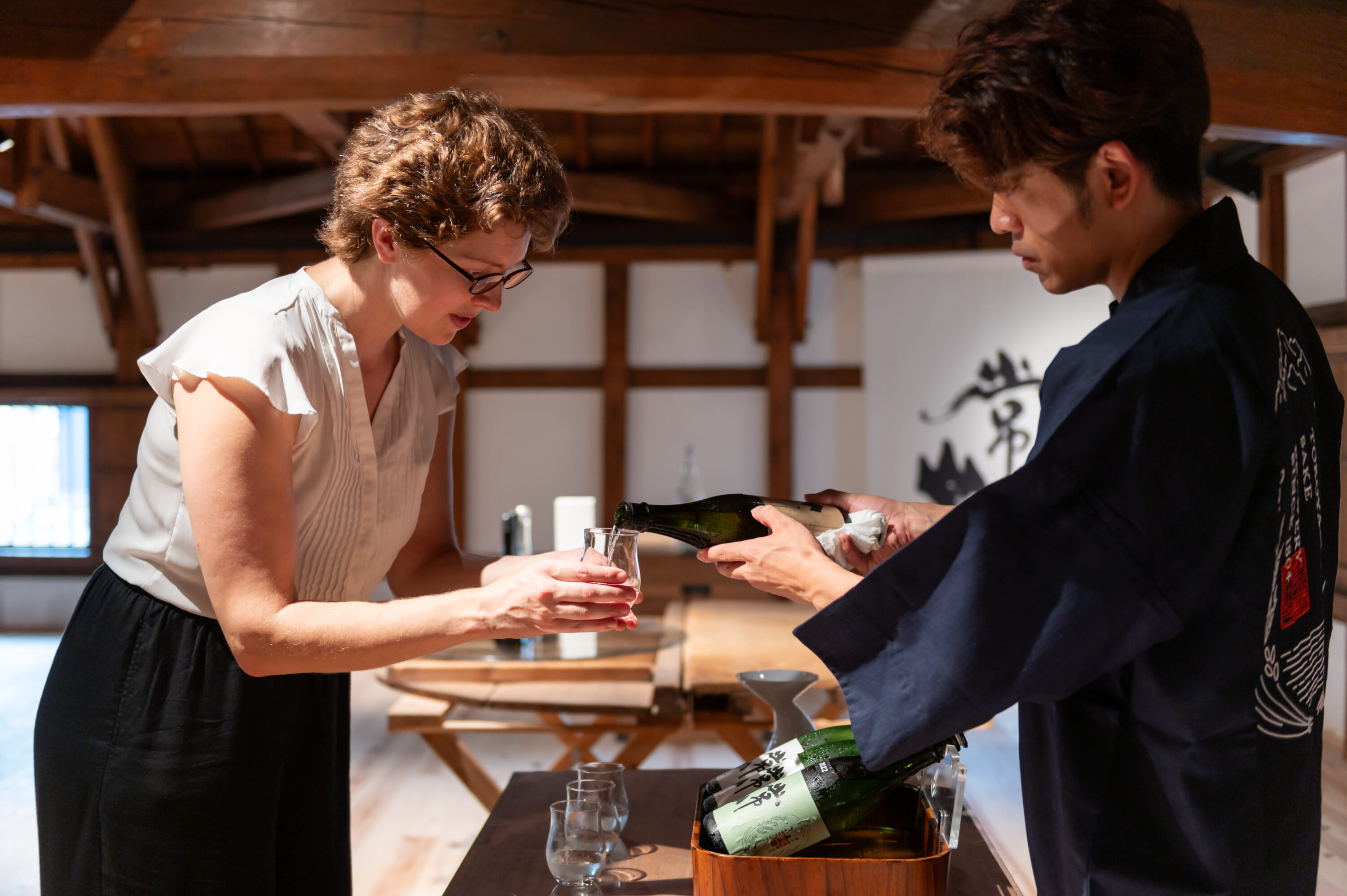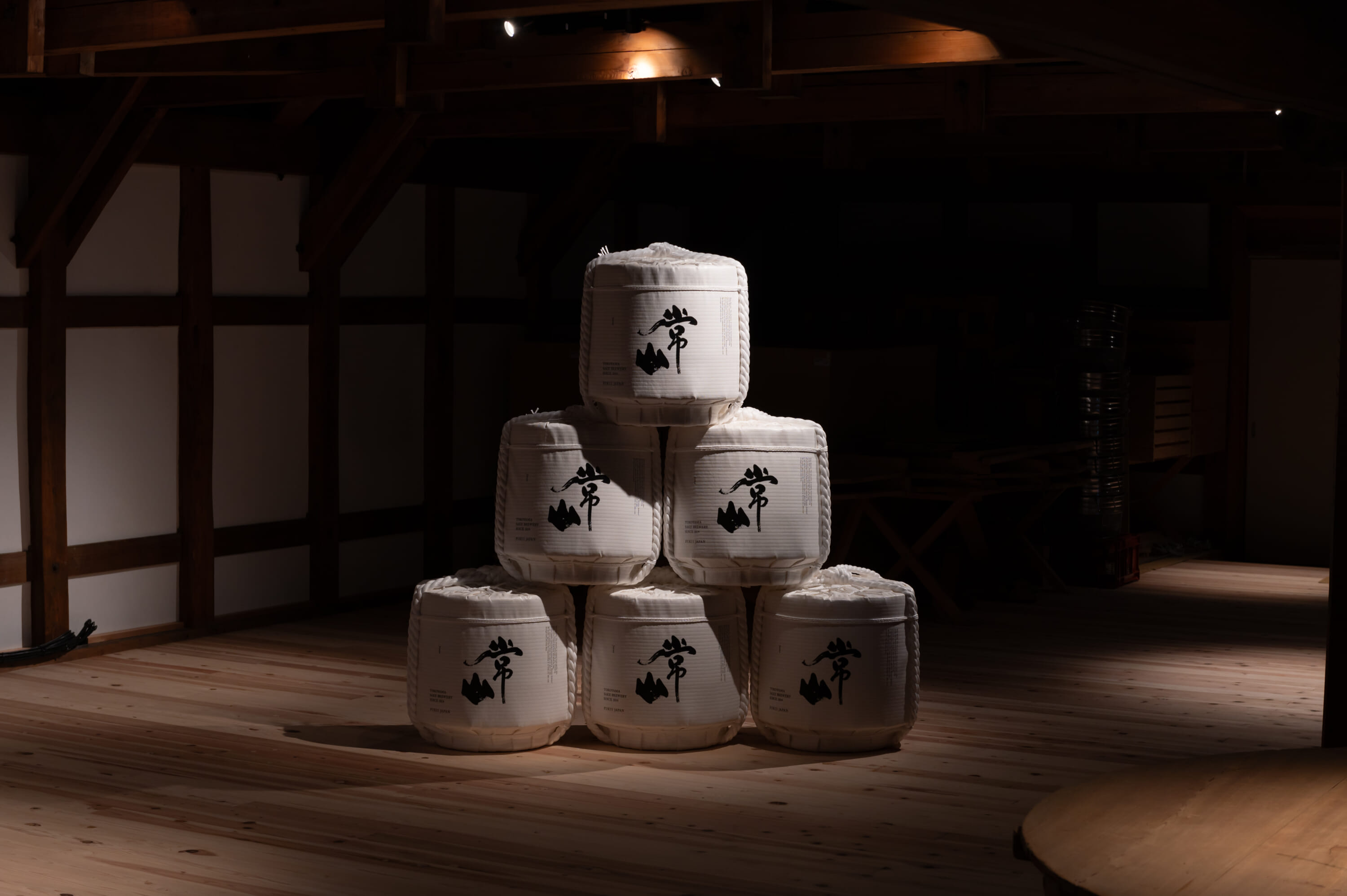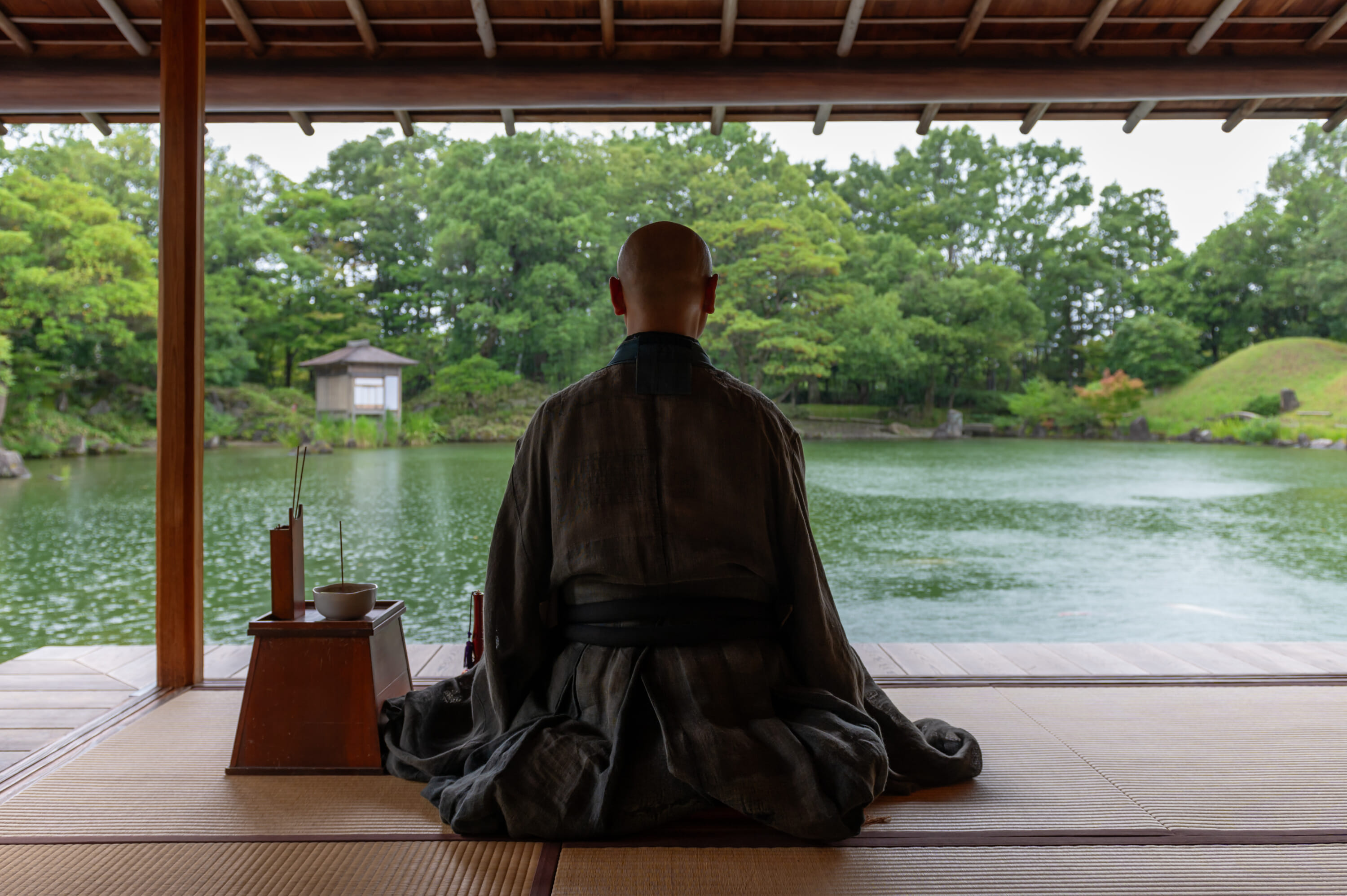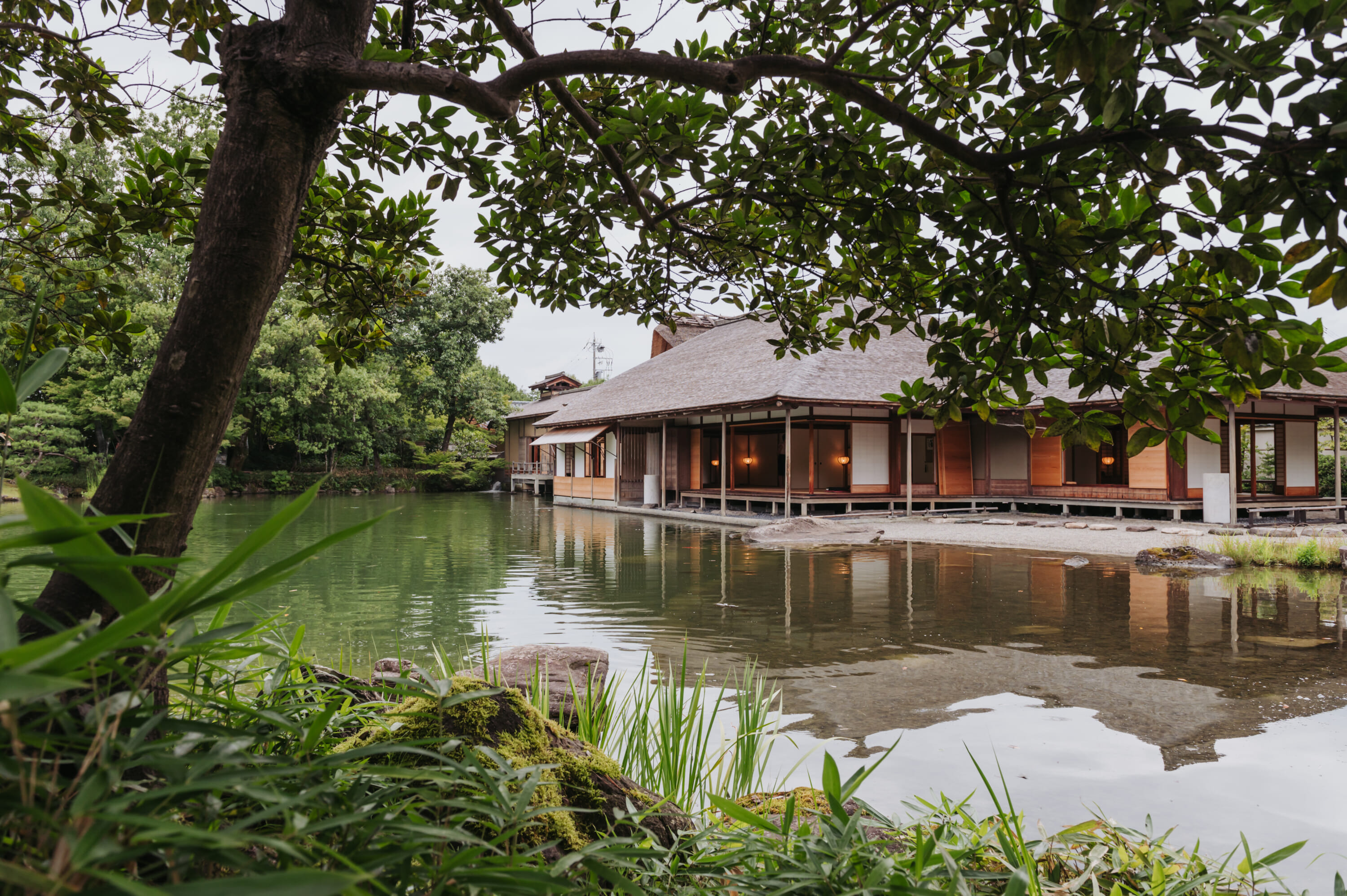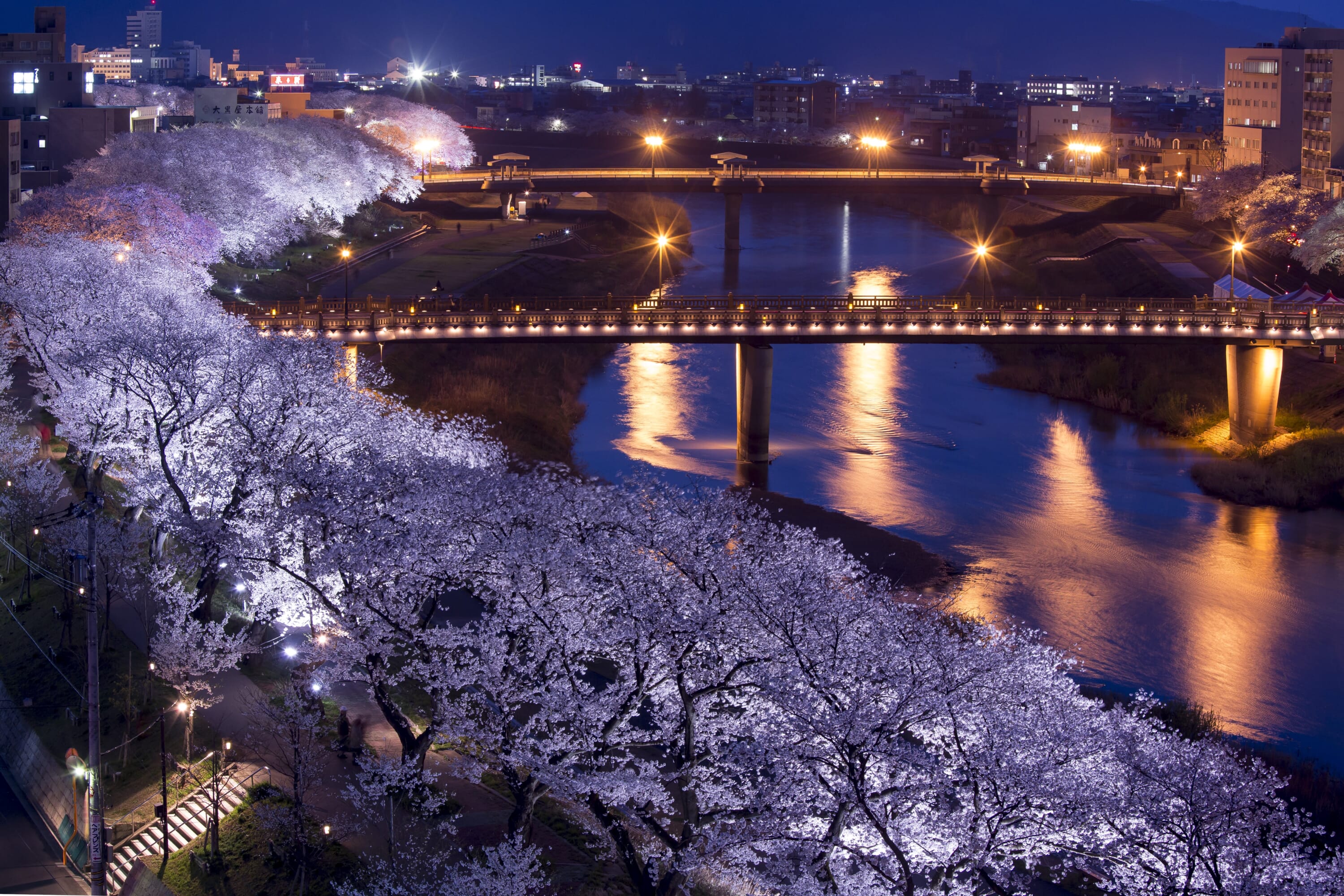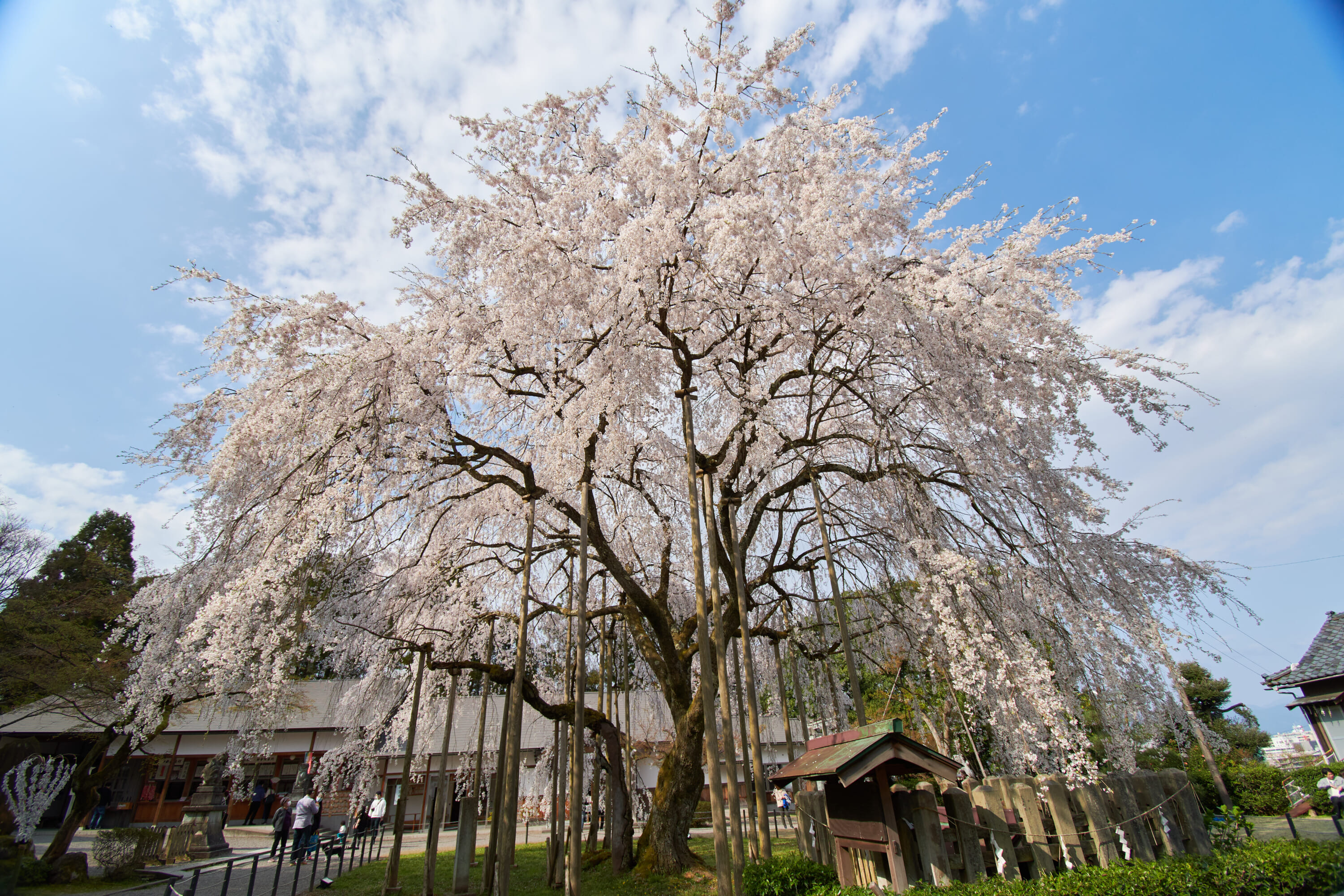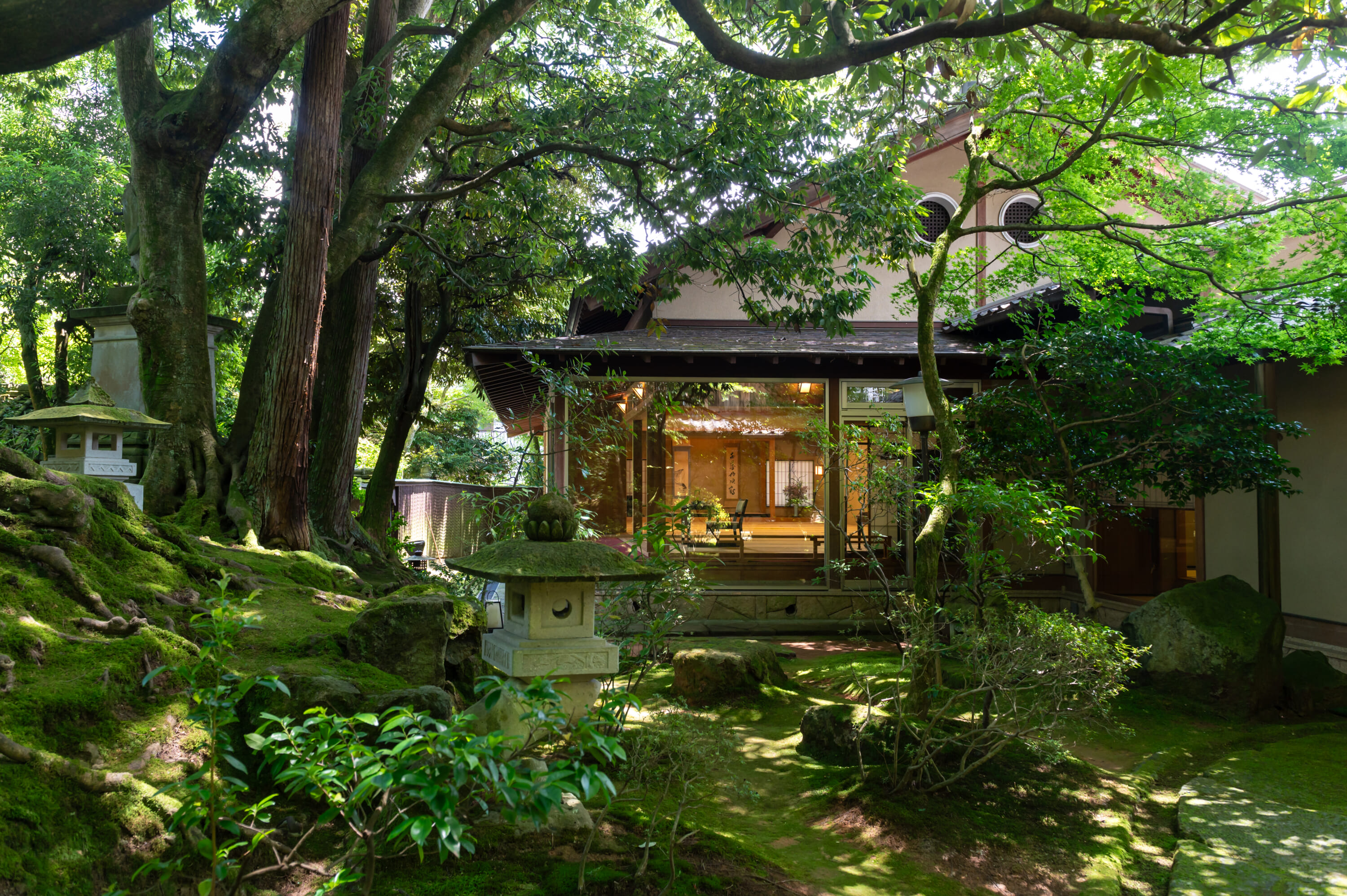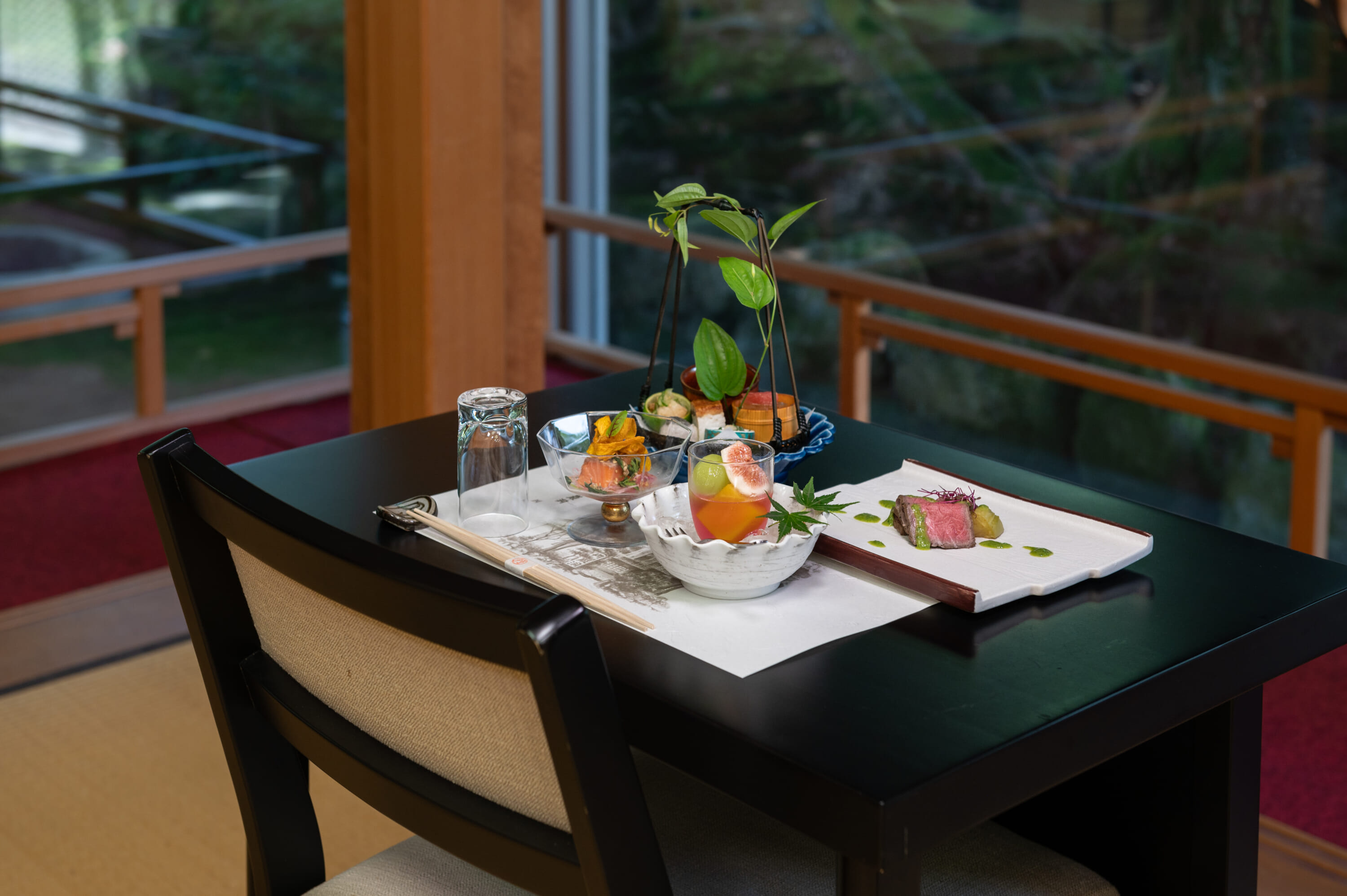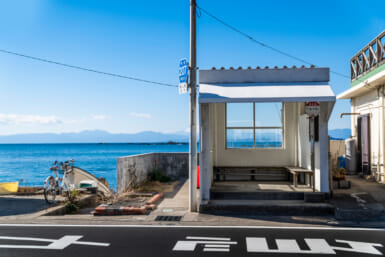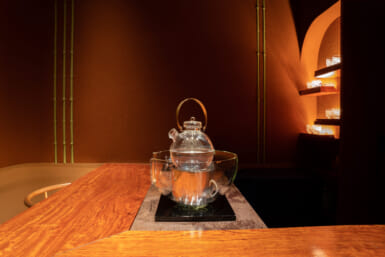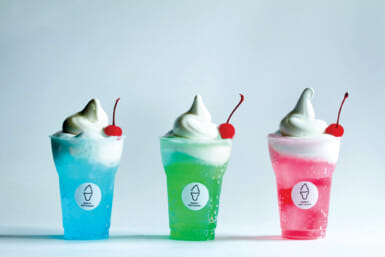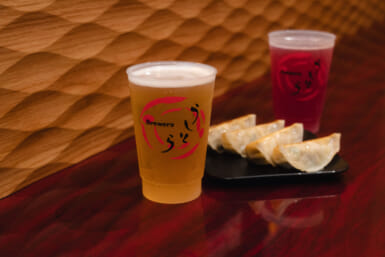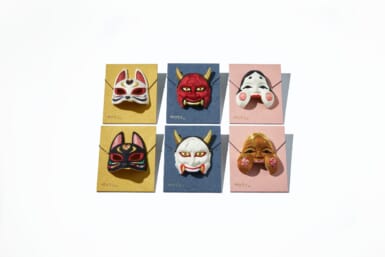Stunning landscapes, delicious cuisine, a rich history and a culture entwined with Zen Buddhism — Fukui Prefecture and its eponymously named capital city, a former castle town, tick off many items on a Japan traveler’s wish list. Soon, convenience will be added to the ranks, as in the spring of 2024, the Hokuriku Shinkansen is set to open its latest extension, making Fukui city a short three-hour trip from Tokyo. Wondering how to spend a few days in the city and its environs? Check out our sample itinerary below.
Day One:
Get to Know Fukui City
Start your trip off with a visit to Fukui’s tourist information center, located outside the station’s west exit. There, you can receive advice and support from English-speaking staff and connect to Wi-Fi. The center is also a pickup and drop-off point for electric-assist rental bicycles.
Tokoyama Sake Brewery
Fukui is known for its high-quality rice and pristine water. Combined with koji and yeast, these ingredients are nurtured by brewers into the region’s many prized sake brands. Tokoyama, the oldest brewery in Fukui city and maker of the Jozan brand, began operations in 1804. The current toji (master brewer) is ninth-generation head Shinpei Tokoyama, whose passion for his brew — and his birthplace — is palpable. He’s especially committed to using Fukui-cultivated rice, and he envisions future events where Jozan sake is paired with local specialties. Drop by the brewery to pick up a bottle at the on-site salesroom. Tastings can be arranged upon request.
Day Two:
Discover the Castle Town’s History
Like many former castle towns in Japan, Fukui has a long, proud and well-documented history. Get a feel for the city’s past by exploring its historical sites.
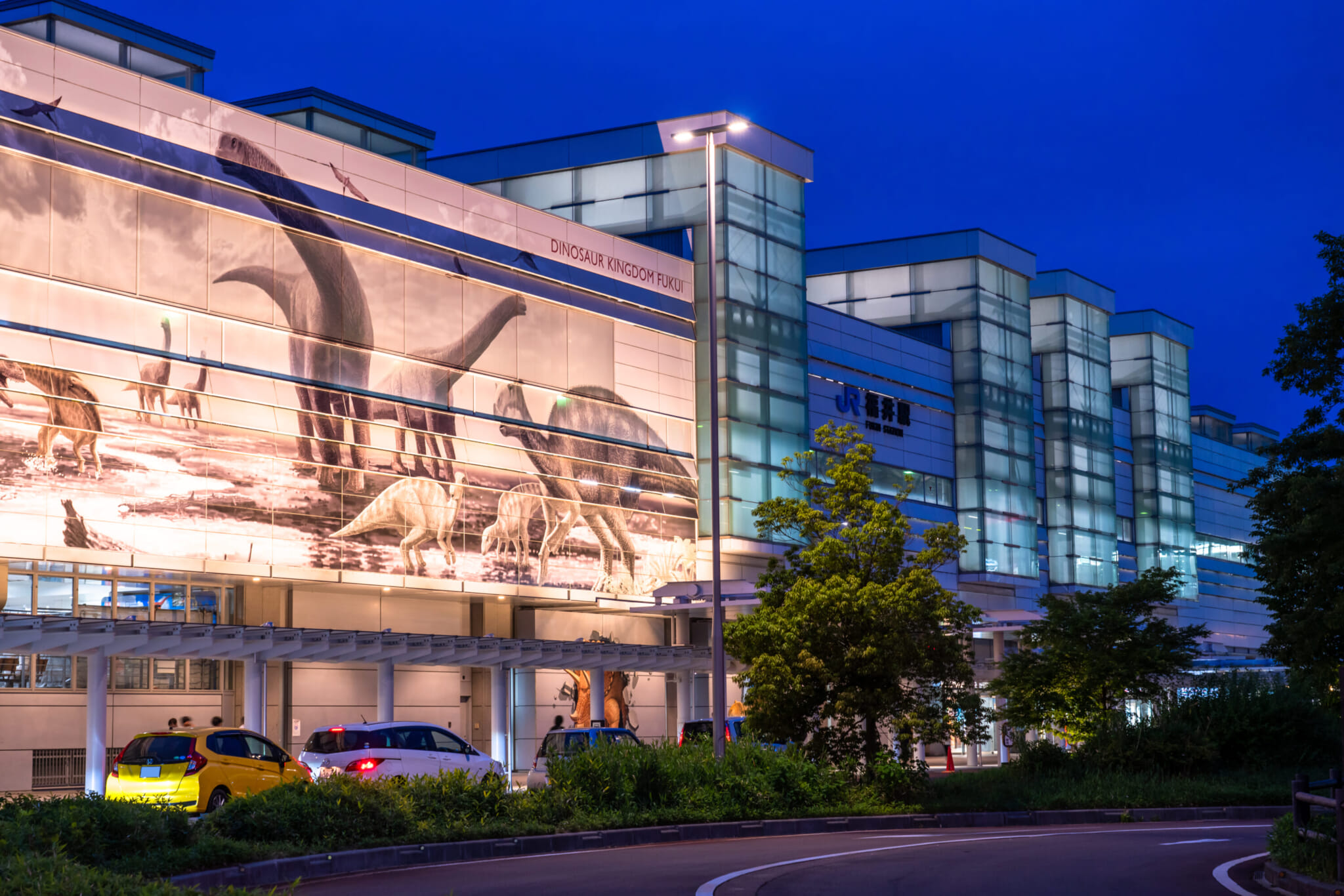
Fukui Station showcases three species of dinosaur found in — and named after — Fukui Prefecture.
Dinosaur Plaza
The moment you disembark at Fukui Station, it becomes abundantly clear that the city adores dinosaurs. There’s a good reason for this: Approximately 80% of dinosaur fossils found in Japan were discovered in the prefecture. Dinosaur Plaza, located outside Fukui Station’s west exit, is Fukui’s enthusiasm for dinosaurs made manifest. While it may not be an actual fossil site, the plaza’s three life-sized animatronic dinosaurs, footprint fossils and dinosaur artwork do an excellent job of hyping up one of Fukui’s claims to fame.
Fukui Castle Ruins
After getting a taste of Fukui’s ancient history, skip forward approximately 120 million years to a more recent past with a visit to the Fukui Castle Ruins. Though the castle is no longer, the stone walls and water-filled moat remain. Other parts of the castle have been rebuilt, including a bridge across the moat. The ruins are especially popular during sakura season.
Yokokan Garden
More Japanese architecture is on display at nearby Yokokan Garden. The pond in this traditional strolling garden features a colorful school of mesmerizing koi. You’ll also find a reconstructed sukiya-style building replicating a Matsudaira clan villa. The original structure was destroyed during a WWII air raid and rebuilt in the 1980s. Miraculously, the garden survived the bombing.
Fukui City History Museum
Flesh out your knowledge of Fukui’s history and add context to your explorations thus far with a visit to this museum just a stone’s throw from Yokokan Garden. Exhibits cover everything from the area’s ancient history to the air raids of 1945 and beyond.
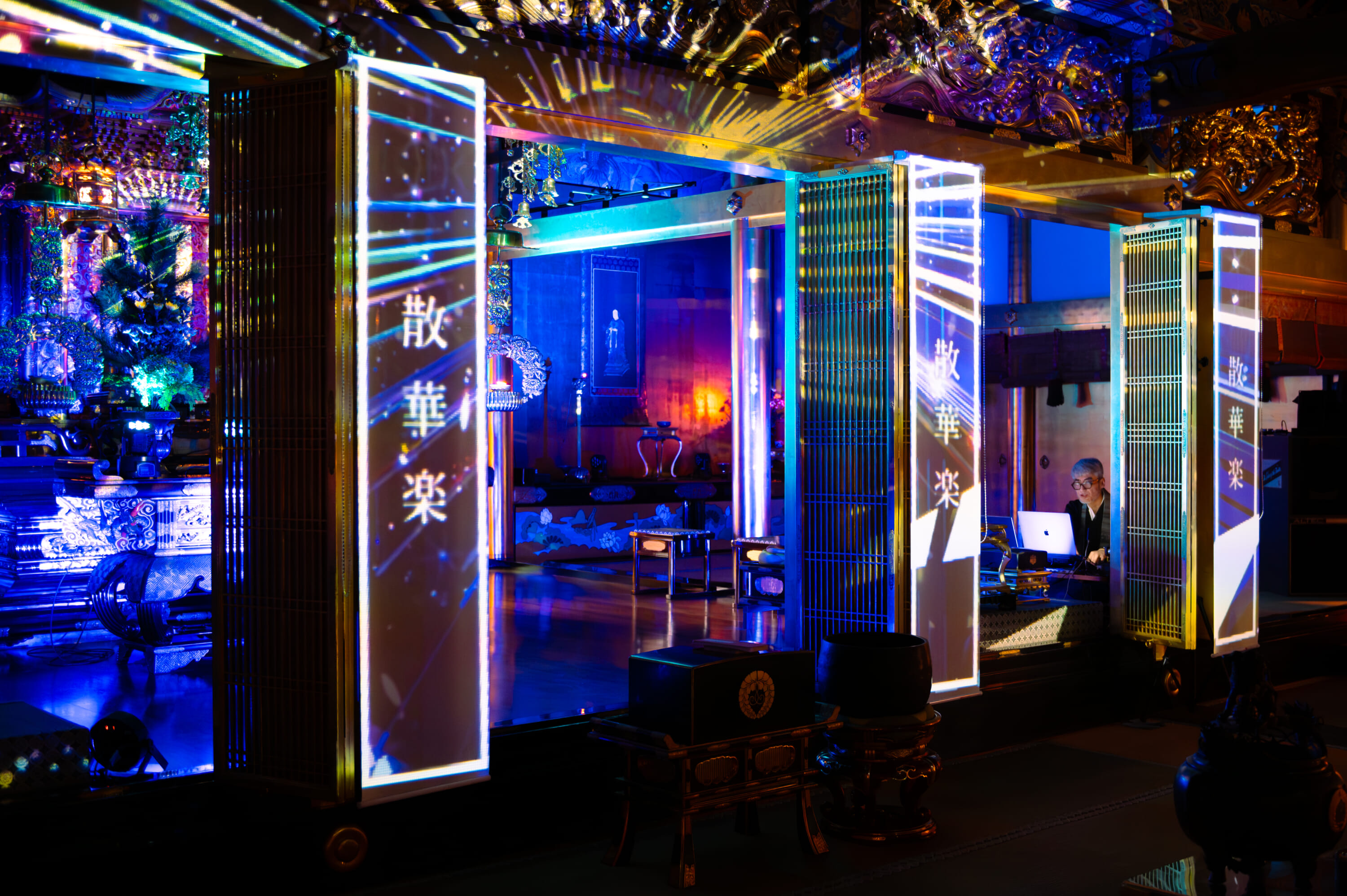
Photo by Lisa Knight
Sho-onji Temple
After exploring Fukui’s past, make your way to Sho-onji to see how one Buddhist priest is mixing modernity with ancient Buddhist practices. Gyosen Asakura, the temple’s chief priest, introduced techno music and projection mapping into certain services in May 2016 to provide younger generations with a new way to encounter Buddhism.
While the full version of this one-of-a-kind techno service is held just twice a year for special ceremonies, projection mapping and music play in the main hall on Fridays, Saturdays and Sundays when the temple’s café, Show-on G, is open. With light radiating from Amida Buddha, the temple’s central object of worship, and glinting off the temple’s intricate carvings and plentiful gold leaf, the hall is transformed into a world of light and color.
Day Three:
Soak Up Nature
Though the city of Fukui has a population of almost 257,000 people, it’s filled with areas where wilderness abounds.
Asuwayama Park and Riverside
This verdant area is considered one of Japan’s top 100 cherry blossom destinations — and with good reason. About 600 cherry trees line a 2-kilometer stretch of the riverbank, creating a canopy of pink in spring. Other seasons offer ancient burial mounds, museums, play areas, a mini zoo and several observation decks overlooking the city.
Tangando
Next, head to Tangando, the former hermitage of an Edo-period physician to the elite. Located in a quarry where shakudani-ishi (green tuff) was once cut by hand, the hermitage is now a traditional Japanese restaurant serving kaiseki cuisine in three buildings spread out across the moss-covered grounds. The monthly menu features seasonal ingredients, many of which are Fukui-grown.
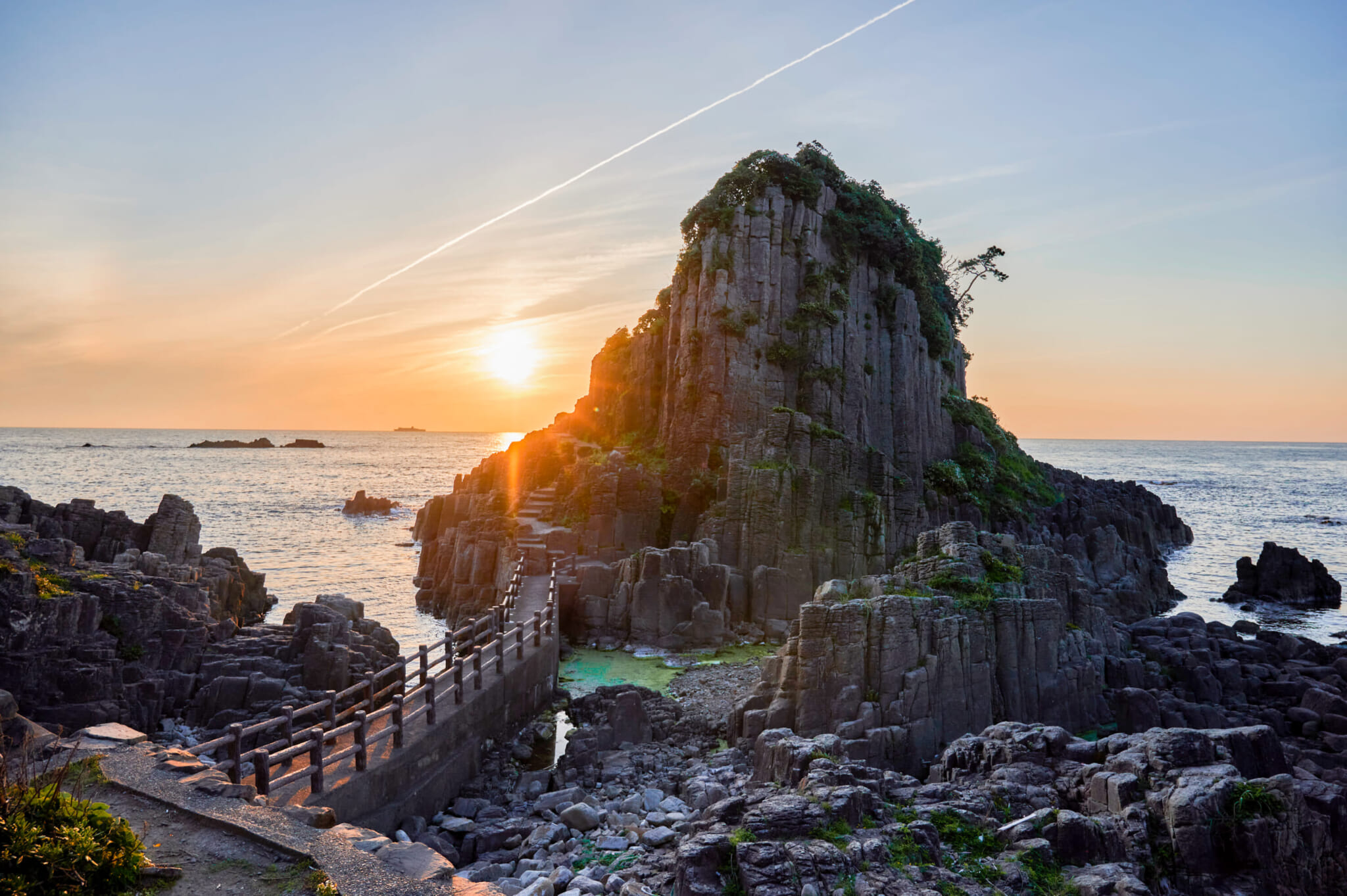
Diminutive Hokojima’s rugged peaks offer unique views of Fukui’s coast.
Hokojima Island
For the afternoon, travel to the coast to explore the geological wonders of Hokojima. The small island consists of a 50-meter-tall cluster of columnar jointing partially eroded by the wild waves of the Sea of Japan. Gorgeous by day, it’s also a spectacular spot to watch the sunset.
Watariglass Studio
Just down the coast from Hokojima, you’ll find Watariglass Studio. The studio specializes in blown glass and is a great spot to pick up souvenirs from a local artisan. A variety of workshops are also available.
Gourmet and Stay Experiences
Deepen your Fukui experience by dining on regional cuisine and bedding down in hotels that immerse travelers in local culture.
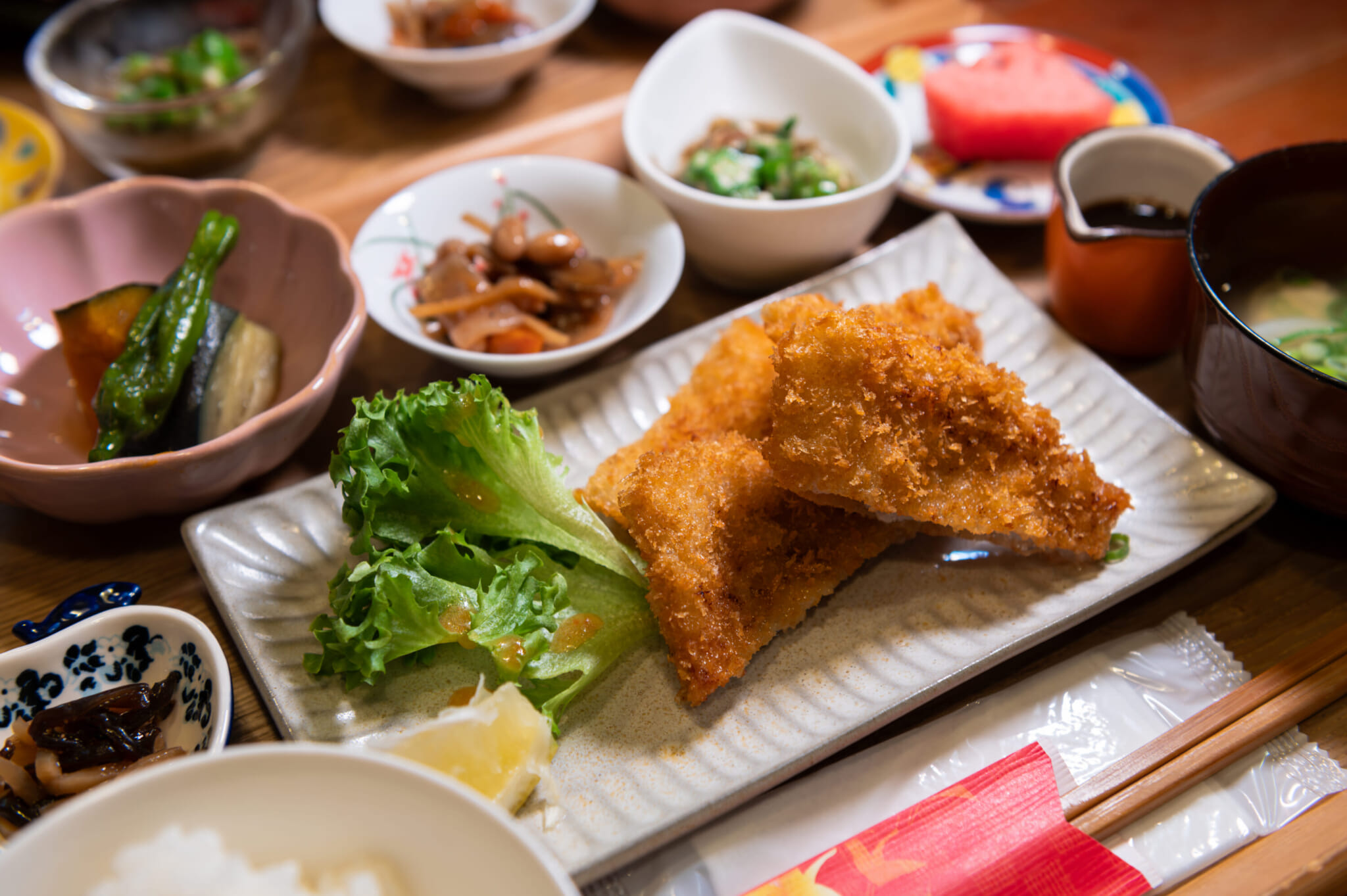
Photo by Lisa Knight
Machi Deli Kakure Wa Syokudou
This cozy eatery makes use of many local ingredients and serves regional and seasonal dishes, including winter’s renowned Echizen crab. Chat with the amiable owner as you dine on Fukui treats like rakkyo (pickled Japanese scallions) and more.
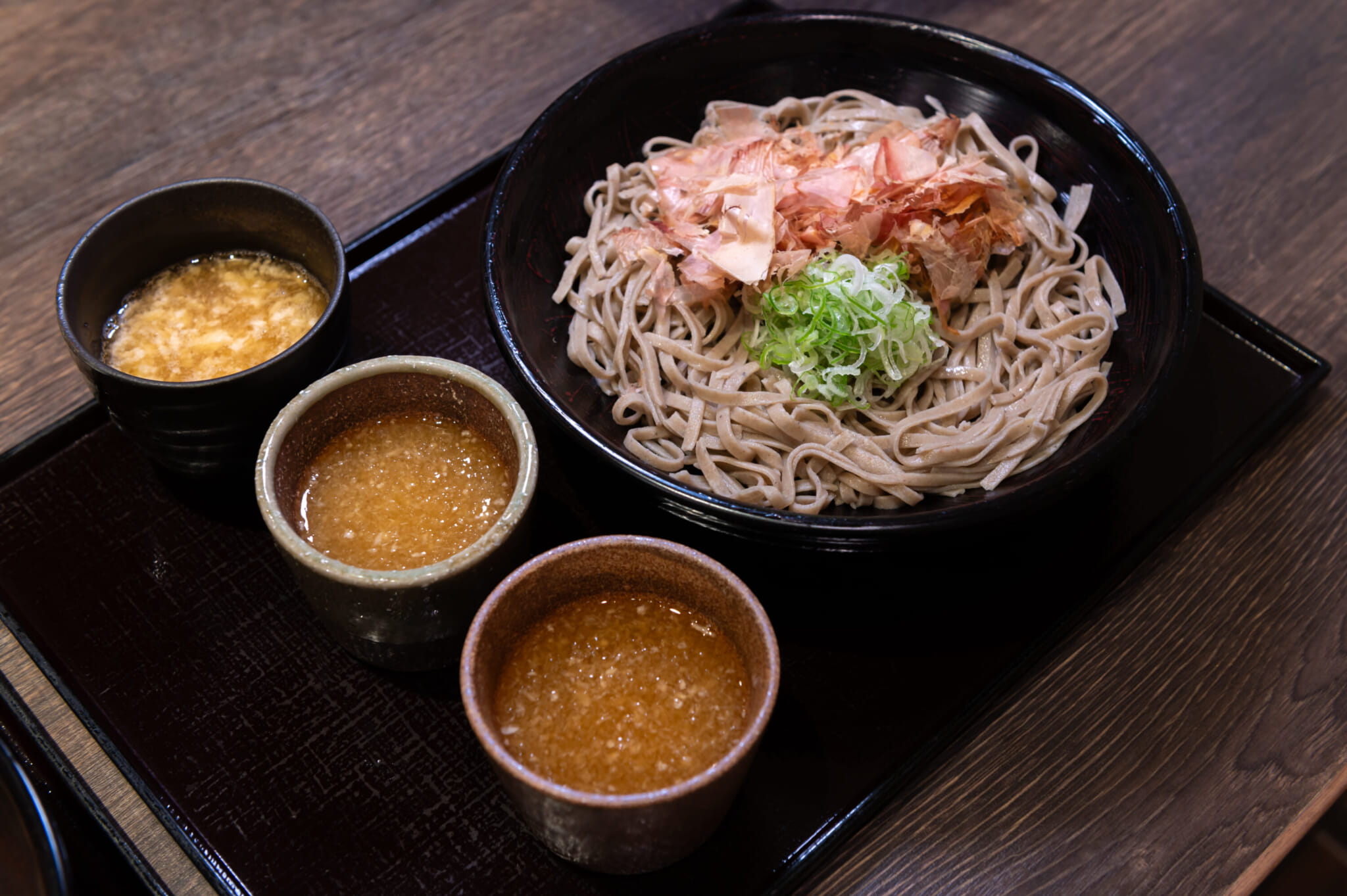
Photo by Lisa Knight
Amida Soba
Sate your hunger with a Fukui specialty: Echizen oroshi soba. The dish of buckwheat noodles, named after the former province of Echizen, is served with grated daikon and a dashi-based sauce. Amida Soba serves juwari (100% buckwheat flour) soba at its two branches in Fukui city.
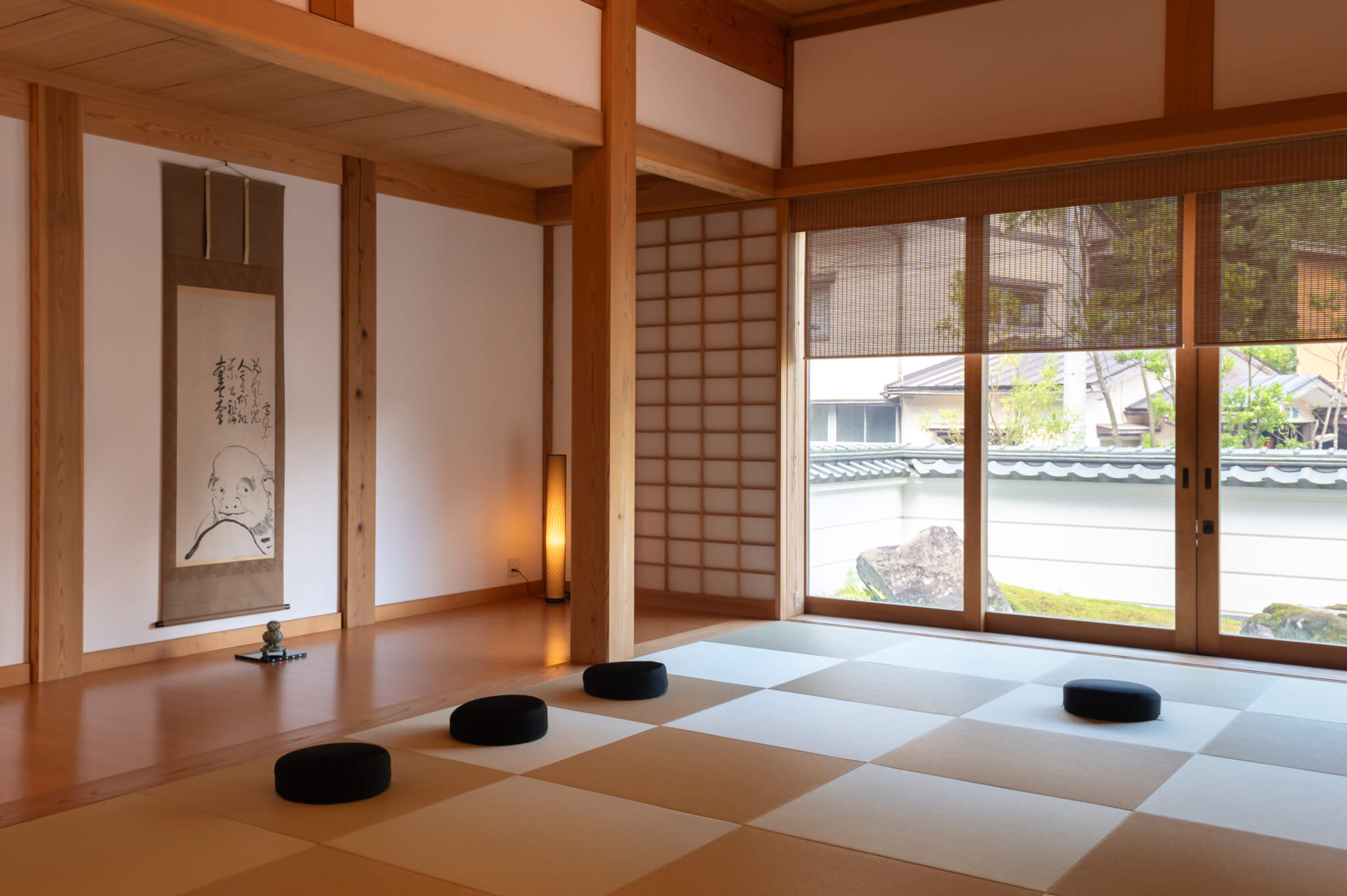
Photo by Lisa Knight
Hakujukan Experience
Fukui Prefecture’s rich culture of Zen Buddhism at Hakujukan, Eiheiji Temple’s sleek and comfortable hotel. Eiheiji, located deep in the forested hills just beyond the Fukui city limits, is a head temple of Soto Zen Buddhism, and a stay at Hakujukan allows you to encounter the temple’s ancient practices.
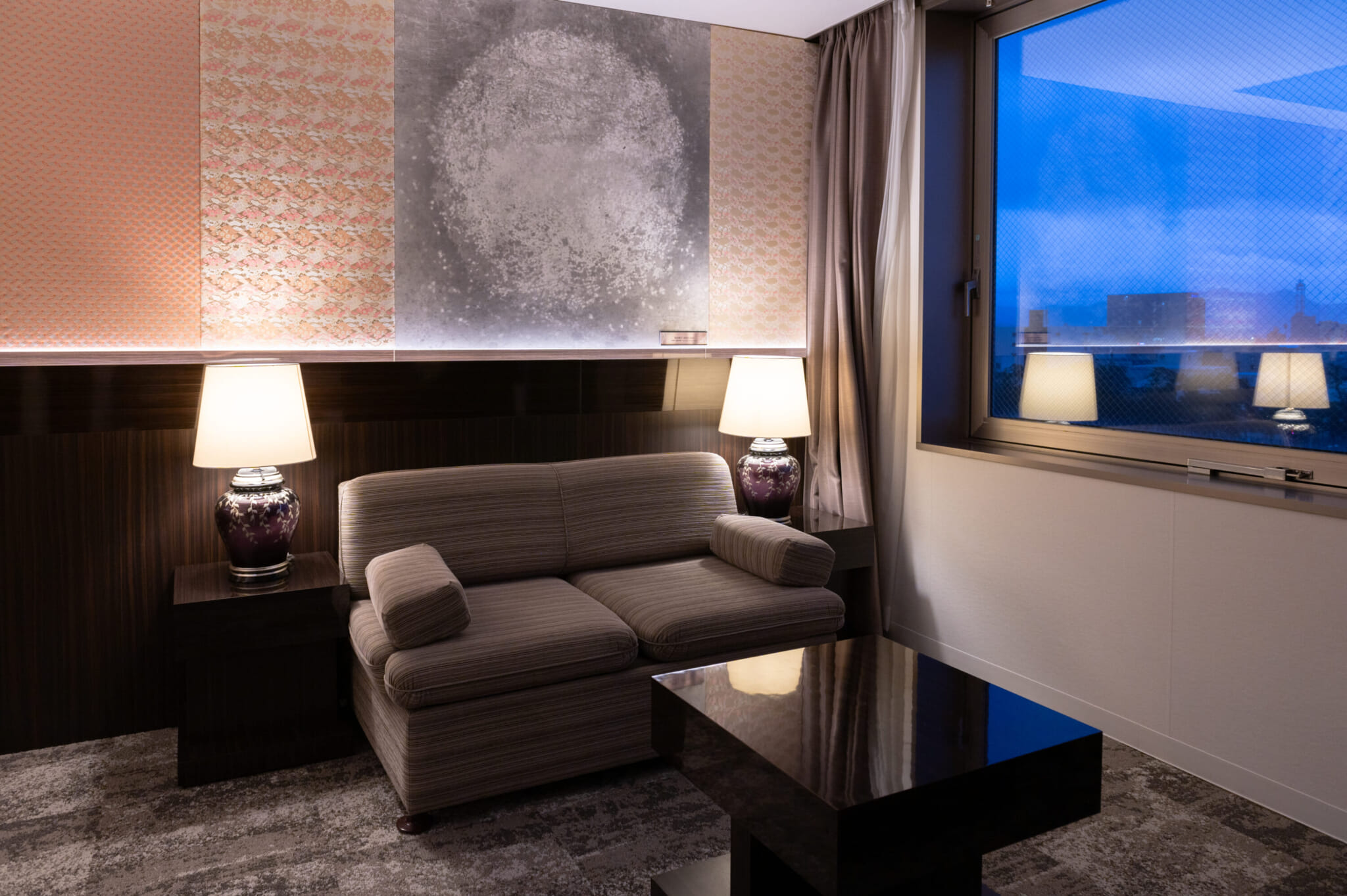
Photo by Lisa Knight
Hotel Riverge Akebono
Echizen city, to the south of Fukui city, has manufactured washi paper for over 1,000 years and is considered one of Japan’s three major centers of washi production. A stay at Hotel Riverge Akebono lets you admire Echizen washi up close, with works from washi artisans featured throughout the hotel.
Gems To Visit Outside the City Limits
Dive deeper into Fukui with trips to other areas of the prefecture.
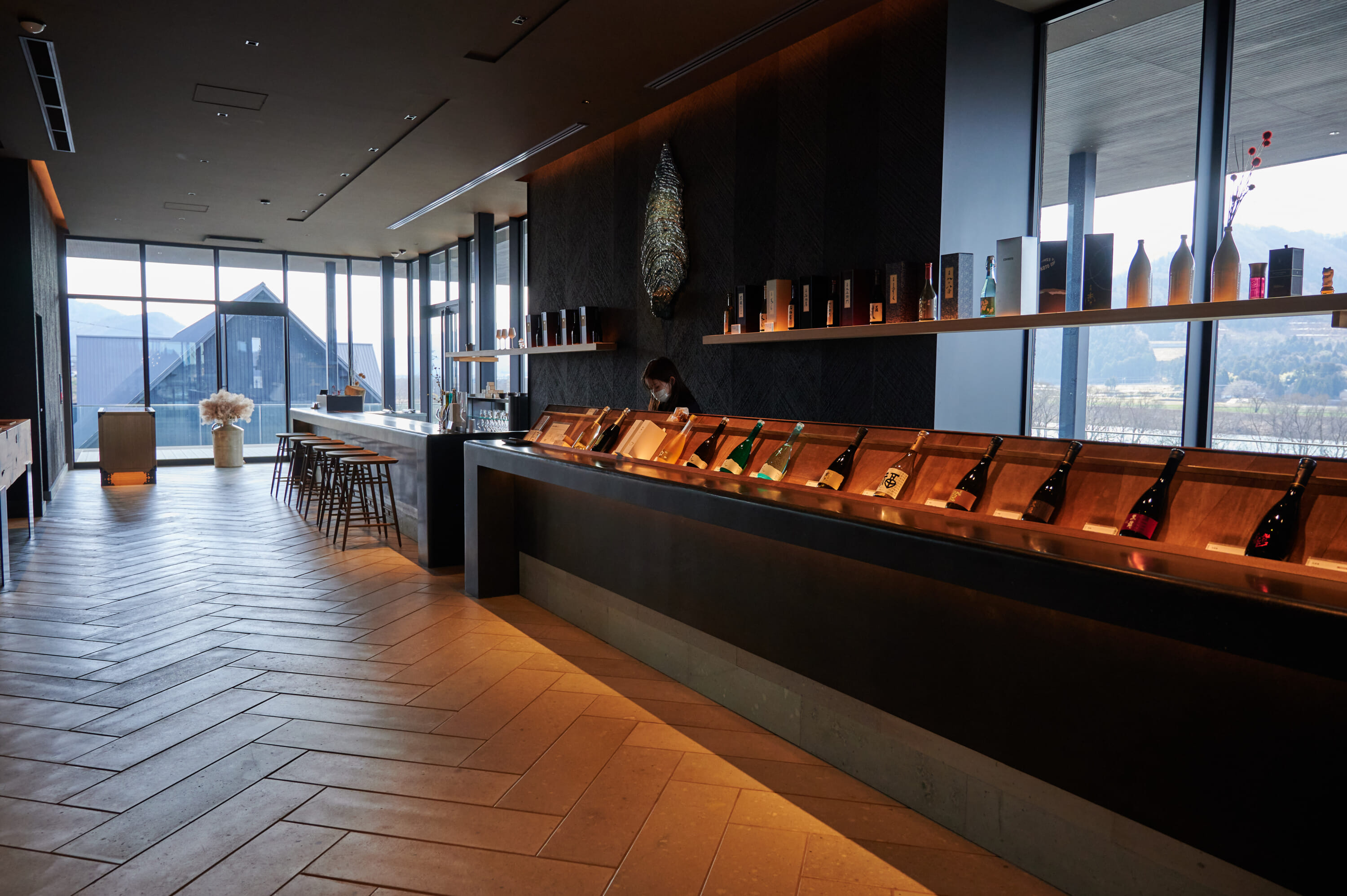
Eshikoto
Overlooking the Kuzuryu River, this new facility from the Kokuryu Sake Brewing Corporation offers the 20-and-over crowd a spectacular spot to savor high-quality sake. Enjoy a drink and a meal at the on-site Apéro & Pâtisserie Acoya restaurant and relish the pastoral scenery of mountains through the facility’s floor-to-ceiling windows.
Takefu Knife Village
Pick up a blade or two forged and polished by the world-renowned craftspeople of Takefu Knife Village, heirs to the 700-year-old Echizen Uchihamono tradition of knife-making. Workshops are also available.
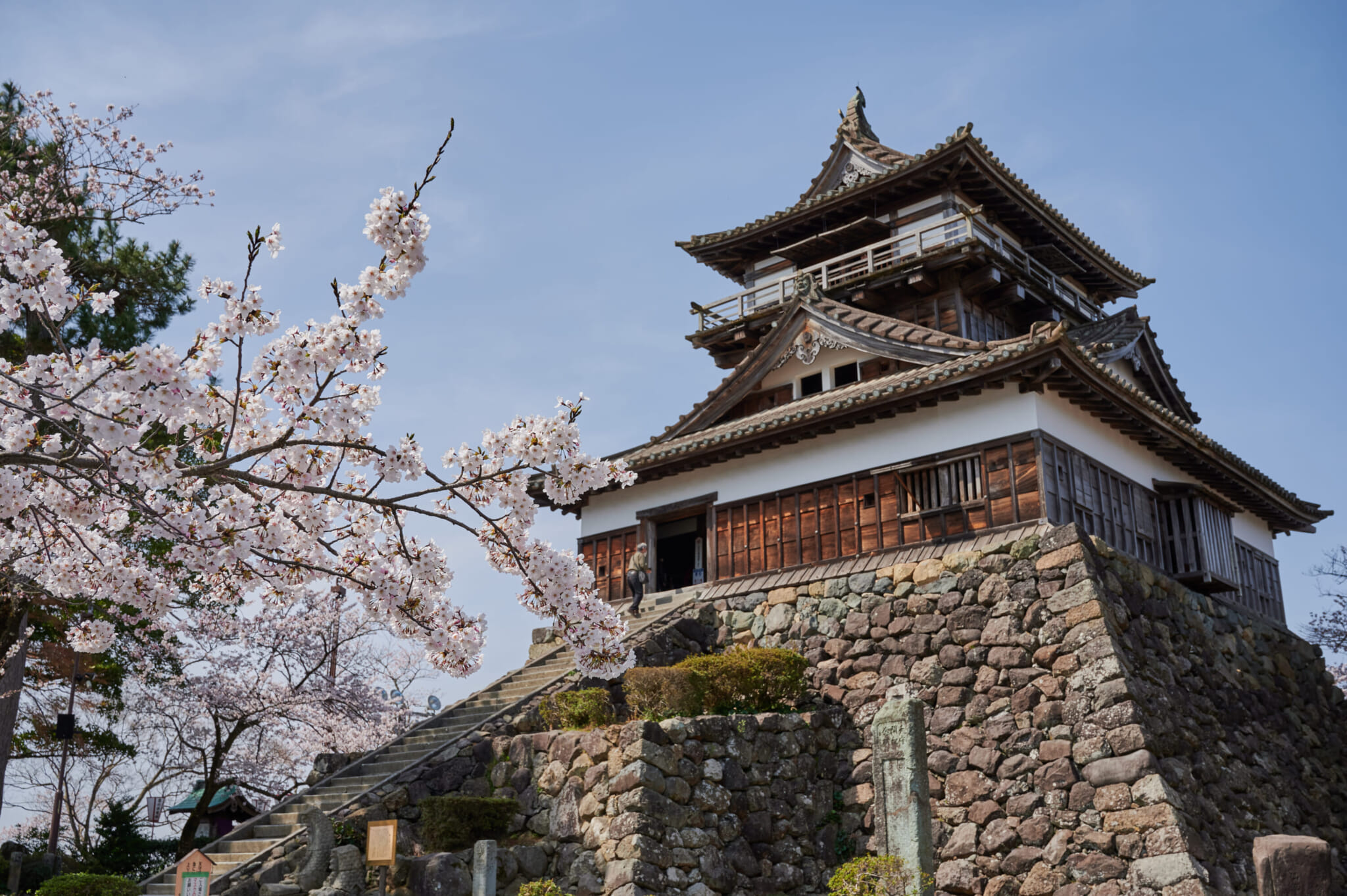
Maruoka Castle
Of the many castles you can visit in Japan, only 12 are originals. One of those is Sakaicity’s Maruoka Castle, which dates to 1576. Ponder centuries-old construction techniques with a walk around the inside. A museum delving into the history of the castle is located nearby.
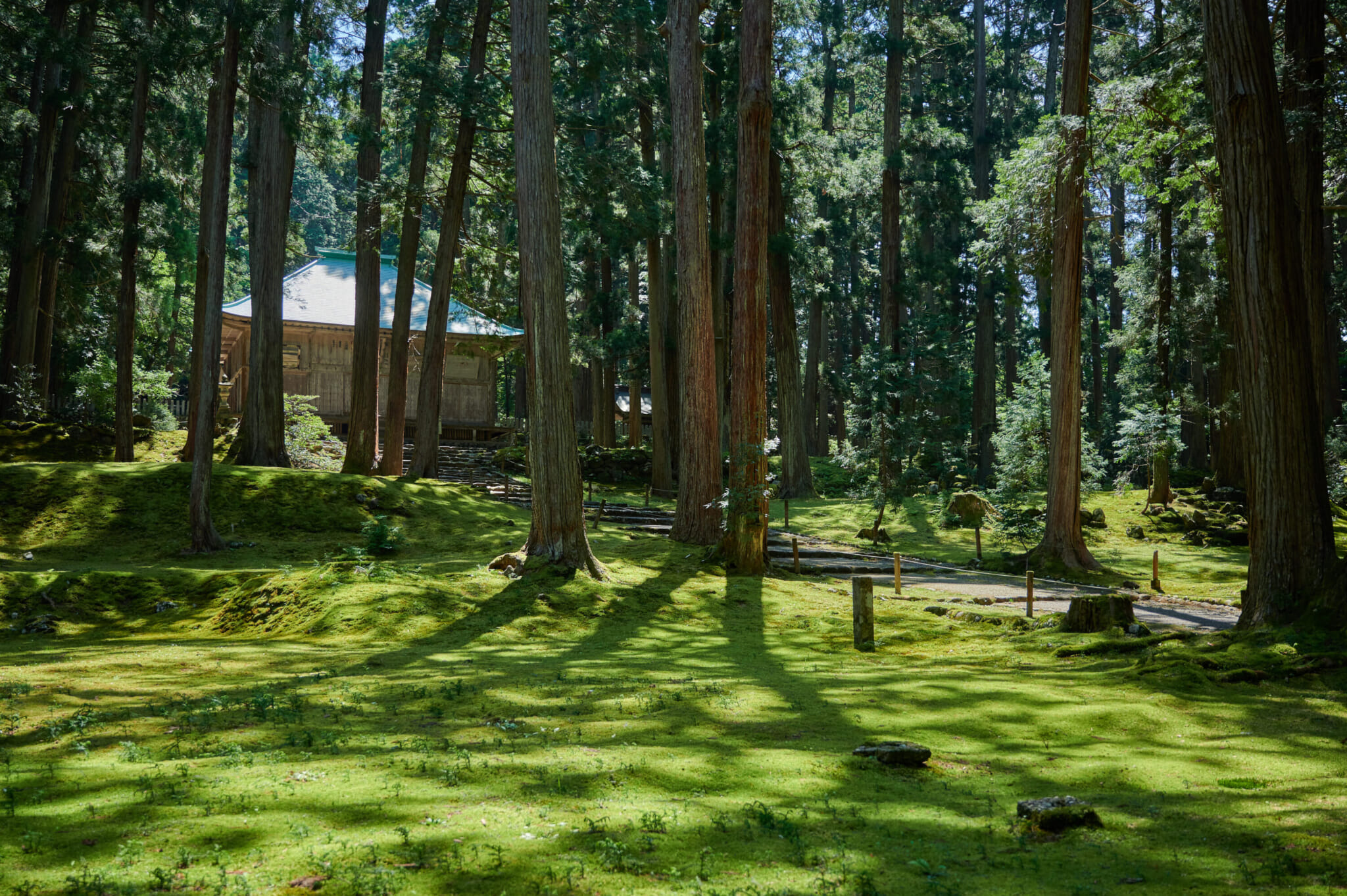
Hakusan Heisenji Shrine
Green moss carpets the grounds of this shrine that began life as a temple in 717 CE. With an interesting history and ethereal atmosphere, Heisenji makes an excellent destination for a culturally rich escape into nature.

